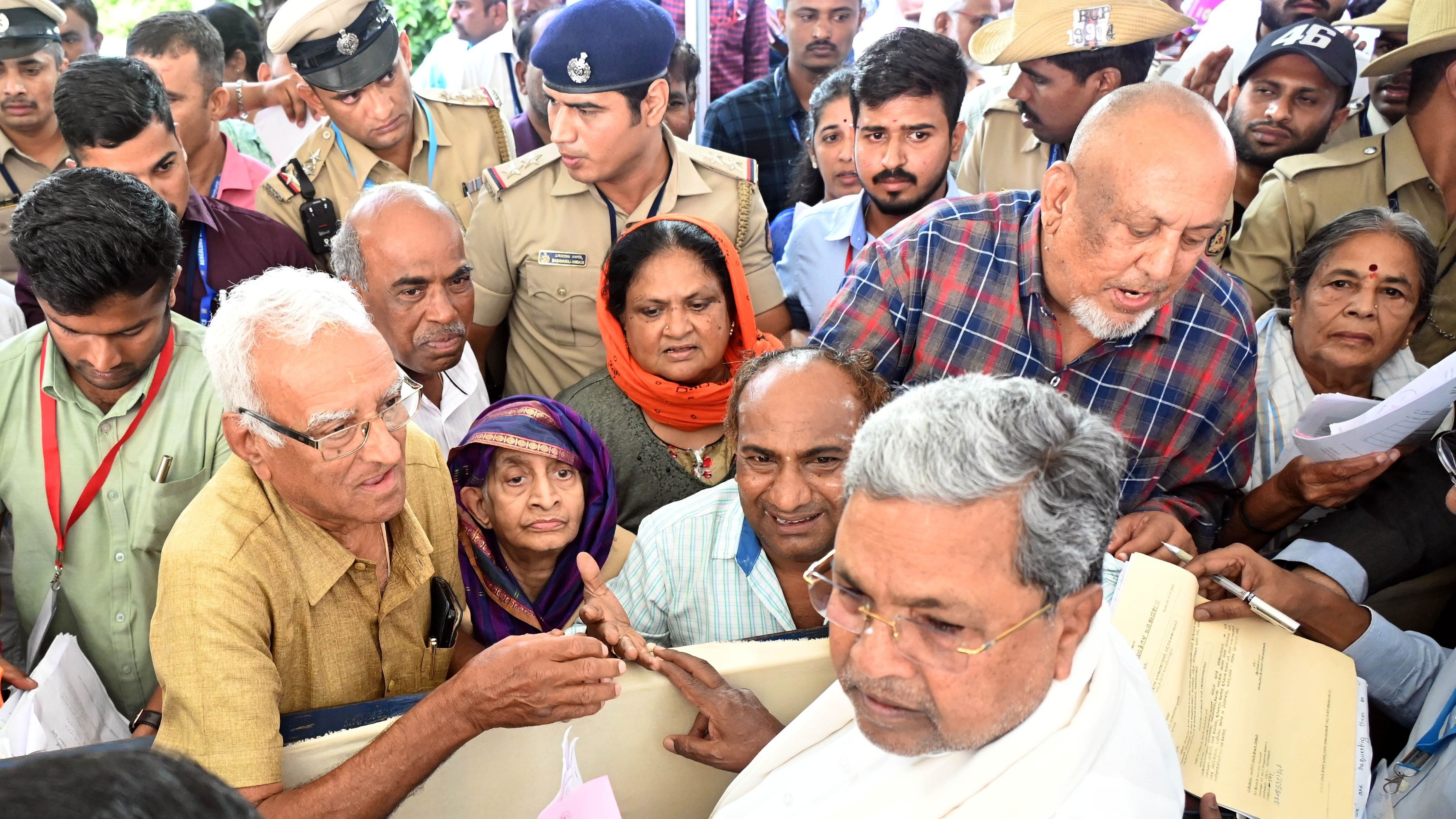
Chief Minister Siddaramaiah interacts with citizens during ‘Jana Spandana,’ at his home office ‘Krishna’ in Bengaluru on Monday.
Credit: DH Photo/B K Janardhan
From civil conflicts to official apathy, Chief Minister Siddaramaiah spent the whole of Monday addressing citizens’ grievances at Jana Spandana, as part of which close to 4,000 petitions and grievances were received by the CM at his home office Krishna.
By the end of the day, the CM received a total of 3,812 applications. A majority of the cases pertain to revenue, police, ‘Gruha Lakshmi’ scheme, BBMP, pensions, gratuity, housing and employment requests.
The number of people who took part in Jana Spandana was far more than expected, Siddaramaiah told mediapersons after the event, lamenting that it was a reflection of poor grievance redressal system at the district-level.
Every 3 months
“I will conduct Jana Spandana at least once in three months,” he said, adding that officials were directed to address public woes at the earliest and ensure that the number of people who turned up for the event next time are far fewer than this time.
He also pulled up officials for putting people in a position to travel all the way to Bengaluru for minor works such as getting Khata, Pahani and Podi, while pointing out to them that this public ordeal can be avoided if the DCs did their work efficiently.
Video call
He has instructed the revenue secretary to conduct a video call with DCs, Siddaramaiah said. “I have asked them them to address grievances at the earliest, including appeals. "Appeals should not be pending for more than one year,” he added.
Of the total applications received, as many as 2,862 were registered in the Integrated Public Grievance Redressal System (IPGRS), while 950 applications were received by hand, which will also be registered on IPGRS.
“Some applications cannot be resolved immediately. It takes time,” Siddaramaiah explained, citing the instance of job applications.
15-day period
The chief minister has directed officials to ensure that all the applications received through Jana Spandana are disposed off within 15 days. That apart, he asked the district incharge secretaries to visit hospitals, police stations, hostels and other public places and resolve public grievances, pointing out that a delay in addressing issues will only lead to corruption.